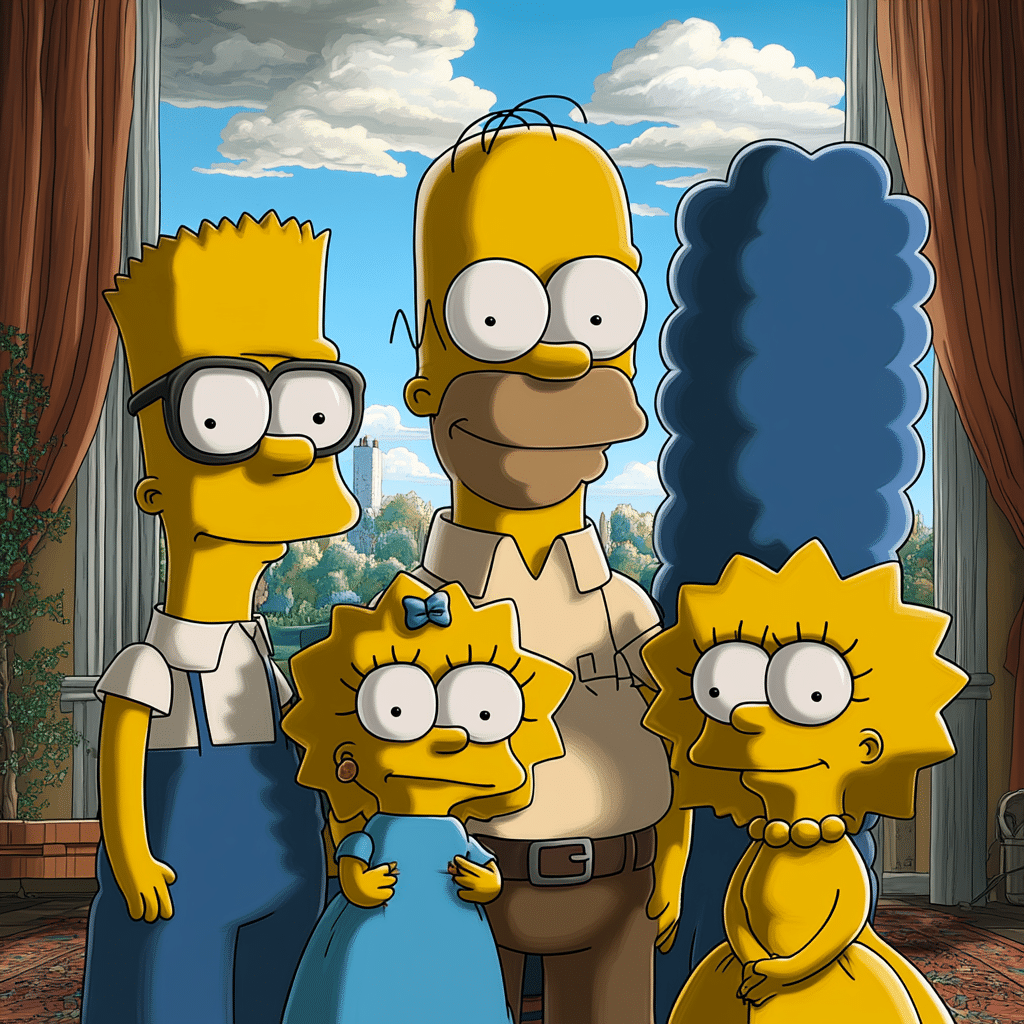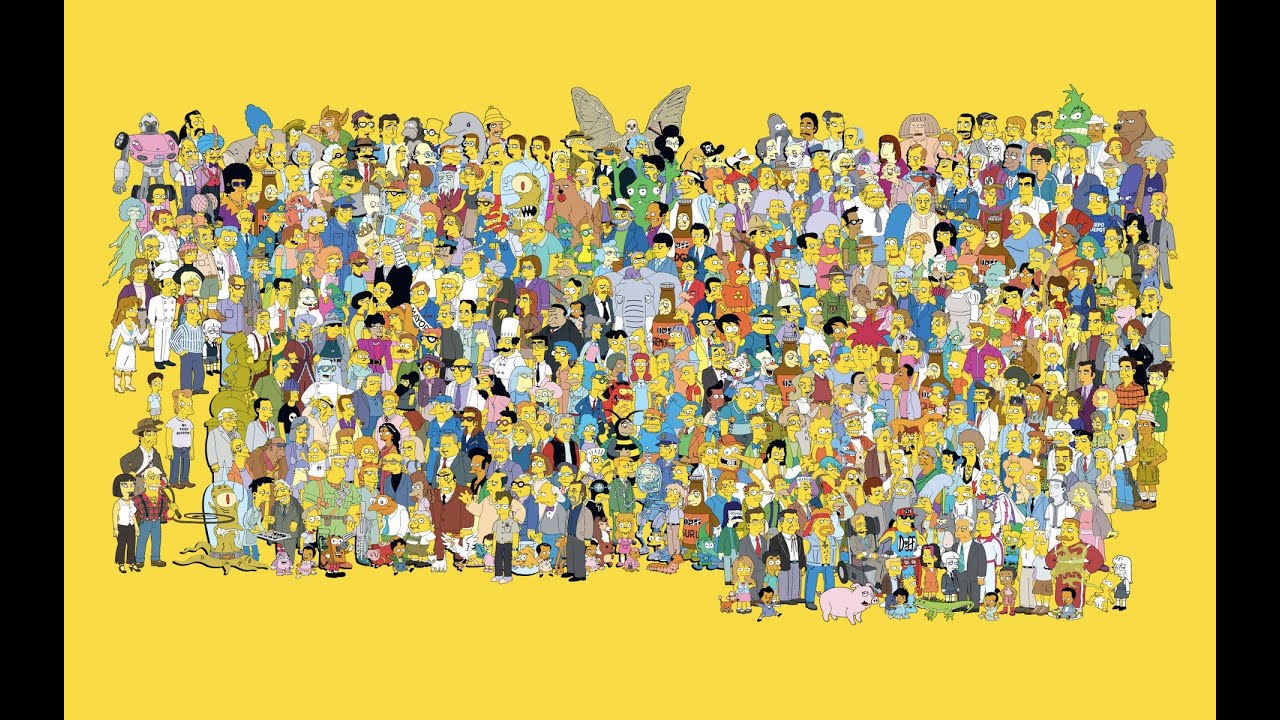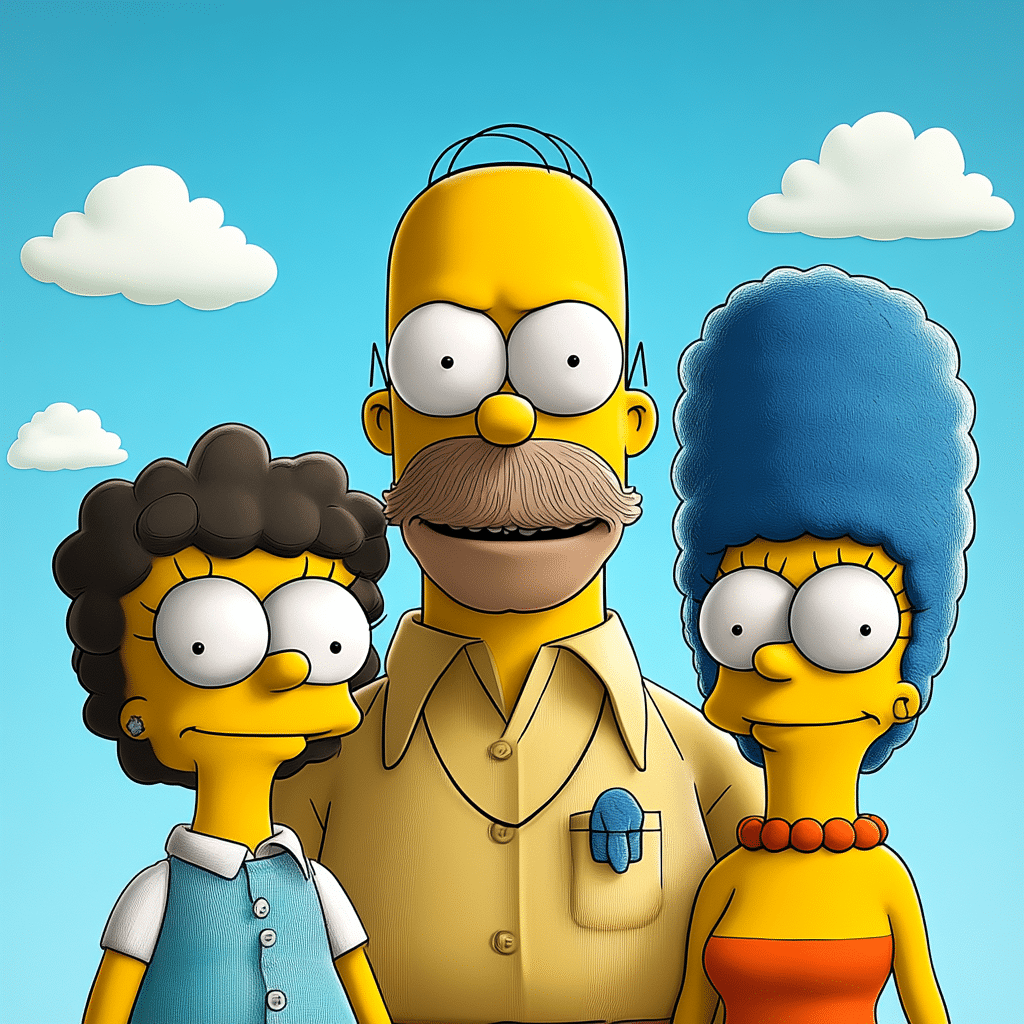
The Simpsons Characters That Defined A Generation
The impact of The Simpsons on pop culture and television is immeasurable. The characters from this iconic show reflect societal norms and humor, employing satire in ways that resonate with various audiences. From the dysfunctional yet relatable Simpson family to a rich ensemble of supporting characters, The Simpsons characters have left an indelible mark on our collective psyche. They entertain, but they also shape trends and conversations that extend beyond animation, creating a dialogue about family, identity, and society.
In a landscape crowded with animated series, The Simpsons uniquely shaped perceptions, offering insights into the complexities of modern life. In this article, we’ll explore the top seven characters that have not only made us laugh but also influenced societal shifts and pop culture in significant ways. So grab a seat and let’s dive into the world of The Simpsons characters that defined a generation!
Top 7 The Simpsons Characters That Shaped Pop Culture
Here, we present seven characters from The Simpsons that stood out over the years, each playing a role in mirroring and shaping cultural conversations. These characters include not only the members of the Simpson family but also other unforgettable figures that have enriched the show’s narrative fabric.
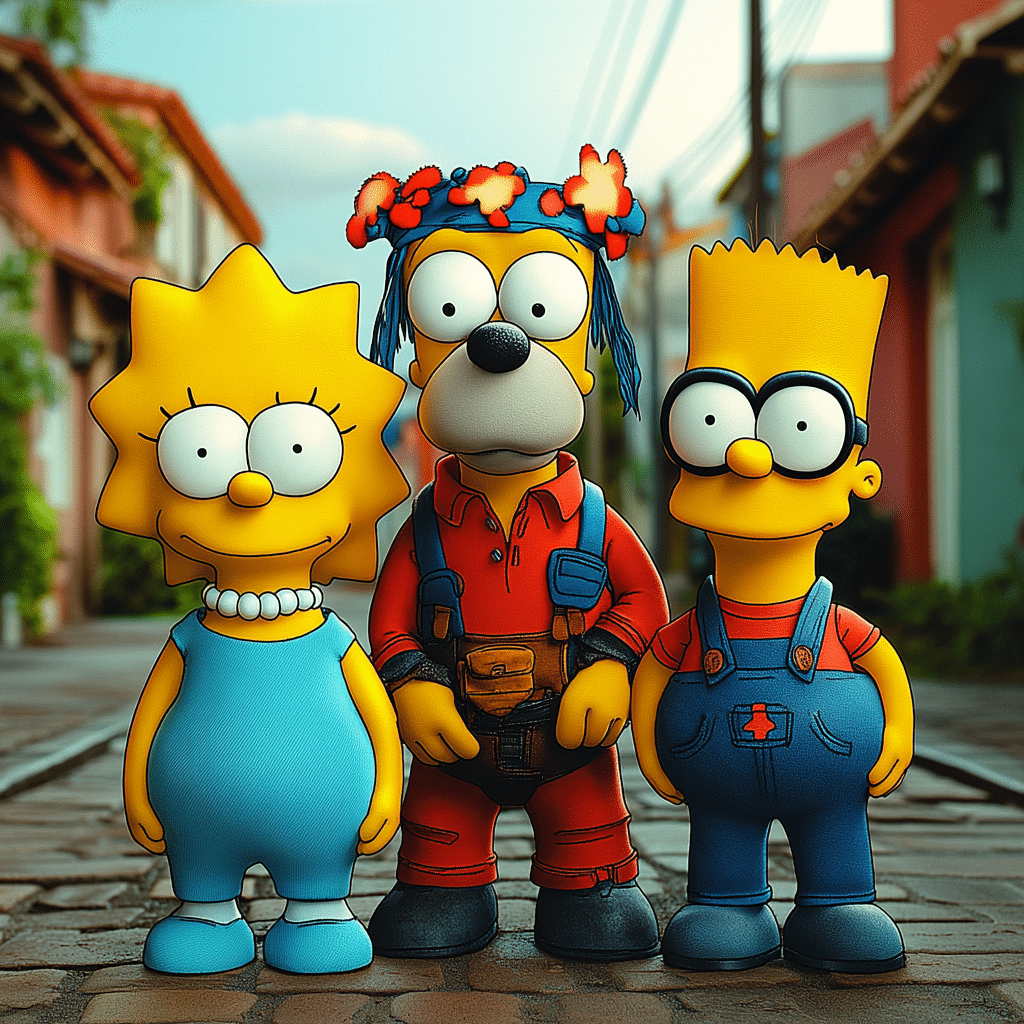
1. Homer Simpson: The Everyman Dad
As the quintessential bumbling father, Homer Simpson embodies flaws mixed with endearing qualities that resonate universally. His character sheds light on fatherhood, work-life balance, and the eternal quest for happiness. Homer’s iconic phrases, like “D’oh!” have made their way into daily vernacular, showing how deeply he’s embedded himself in our culture.
Homer’s infamous escapades often led to Simpsons predictions regarding real-world events. Whether it’s foreshadowing an economic collapse or the rise of certain political figures, this lovable oaf seems to be a step ahead. His everyman persona represents the struggles and joys of modern fatherhood, allowing viewers to chuckle at shared experiences of family life.
Moreover, Homer’s character journey has spurred discussions about the evolving role of dads in society. As traditional gender roles have shifted, he’s become a symbol of how humor can deconstruct and redefine masculinity, making him a clever advocate for a more modern portrayal of fatherhood.
2. Marge Simpson: The Unsung Hero
Marge Simpson serves as the backbone of the family, acting as the voice of reason amidst the chaos surrounding her. Her distinctive blue beehive symbolizes a world where women juggle family responsibilities alongside personal aspirations. Marge showcases the nuanced experiences of motherhood, illustrating that it can be both fulfilling and overwhelming.
When societal norms began shifting, Marge’s character offered viewers a reassuring presence. She reflects the struggles faced by many women, exemplifying their challenges and triumphs during a period of rapid change. As more women entered the workforce and sought independence, Marge remained a relatable figure—a mother who’s often caught in the middle.
From raising her three children to navigating her sometimes tumultuous marriage, Marge’s realness invites viewers to see the complexities of domestic life. Her need for self-fulfillment resonates, shining a light on the importance of mental and emotional well-being, making her one of the most relatable Simpsons characters.
3. Bart Simpson: The Maverick
Bart Simpson embodies the spirit of rebellion, perfectly resonating with youth seeking to push boundaries. Known for his catchphrase “Eat my shorts!” and devious antics, he encapsulates the quintessential adolescent defiance. His character resonates with younger audiences eager for freedom from adult expectations and authority figures.
This ultimate troublemaker became a symbol of the anti-authoritarian movement that marked the 90s. Bart’s antics, along with his rivalry with characters like Nelson Muntz, shed light on the schoolyard dynamics prevalent during this time. In many ways, he represents the confusion and joy of growing up, capturing the hearts and minds of many viewers.
In addition, Bart’s influence has rippled through pop culture, inspiring others who seek to challenge traditional norms. His character serves as a reminder of the importance of self-expression in youth culture, aligning him with other rebellious figures, like the Family Guy characters, who also seek a different path.
4. Lisa Simpson: The Intellectual
Lisa Simpson stands out as a beacon of progressive thought, often engaging with social issues and activism. As an aspiring musician and environmentalist, her character has initiated conversations surrounding feminism and education, making her an influential figure. Lisa resonates particularly with younger viewers who seek to challenge the status quo.
Her complexities often draw parallels with contemporary figures like Greta Thunberg, highlighting similarities in their passionate advocacy for change. Through her character, The Simpsons showcases critical societal challenges, positioning Lisa as a voice for a generation eager for progress and awareness.
Furthermore, Lisa’s character challenges stereotypes often associated with young girls in media. As a smart and determined young woman, she defies pigeonholing, encouraging her peers to pursue their interests and education no matter the obstacles.
5. Krusty the Clown: The Dark Side of Fame
Krusty the Clown serves as a fascinating satire on the entertainment industry, revealing the hollowness that sometimes accompanies celebrity status. His character explores themes of addiction, disillusionment, and the cost of fame, clearly drawing parallels with real-world figures like The Rock WWE, who has successfully transitioned from wrestling to a film career while battling personal demons.
Krusty’s struggles with substance abuse and bouts with depression resonate deeply, encouraging viewers to rethink the glamorization of fame. His humor masks the deeper issues he faces, reflecting how many celebrities grapple with their own battles while appearing joyful on screen.
Moreover, his character serves as a cautionary tale about the pitfalls of fame, reminding us that life isn’t always as bright as it seems. Whether it’s through laugh-out-loud moments or stark realizations, Krusty’s story remains a poignant commentary on the darker side of showbiz.
6. Ned Flanders: The Ultimate Neighbor
Ned Flanders represents the idealized neighbor in a comedic format. As a pious character with unwavering kindness, he often portrays the wholesome suburban ideal while highlighting themes of faith and morality. Ned’s constant positivity offers a cheerful counterbalance to the cynicism of other The Simpsons characters.
By embodying the quintessential Christian values, Ned becomes a vehicle for discussing topics like tolerance and acceptance. He inspires viewers to find comfort in empathy, even amidst chaos. His interactions with the Simpson family often present both comedic relief and notable narratives about friendship and community values.
Ultimately, Ned’s over-the-top sincerity serves as a reminder of the importance of compassion. His character enriches discussions on living harmoniously with our neighbors—a growing necessity in today’s society.
7. Mr. Burns: The Corporate Villain
Mr. Burns stands as the archetype of corporate greed and moral decay within The Simpsons. Representing the darker side of capitalism, he embodies the ruthless tycoon, making him a very relevant character in discussions about wealth inequality. His character strikes fear as he manages the Springfield Nuclear Power Plant almost like a caricature straight out of a horror story.
In an era when corporations often prioritize profit over people, Mr. Burns remains a chilling reminder of the potential consequences of unfettered capitalism. His interactions with characters like Homer showcase the sometimes exploitative nature of the corporate world, bringing much-needed attention to work-life balance sentiments.
The timelessness of Mr. Burns’ character provides invaluable commentary on various economic themes, from corporate scandals to social responsibility. His figure has sparked discussions well beyond the television screen, inviting audiences to critically evaluate the dynamics of power in today’s society.
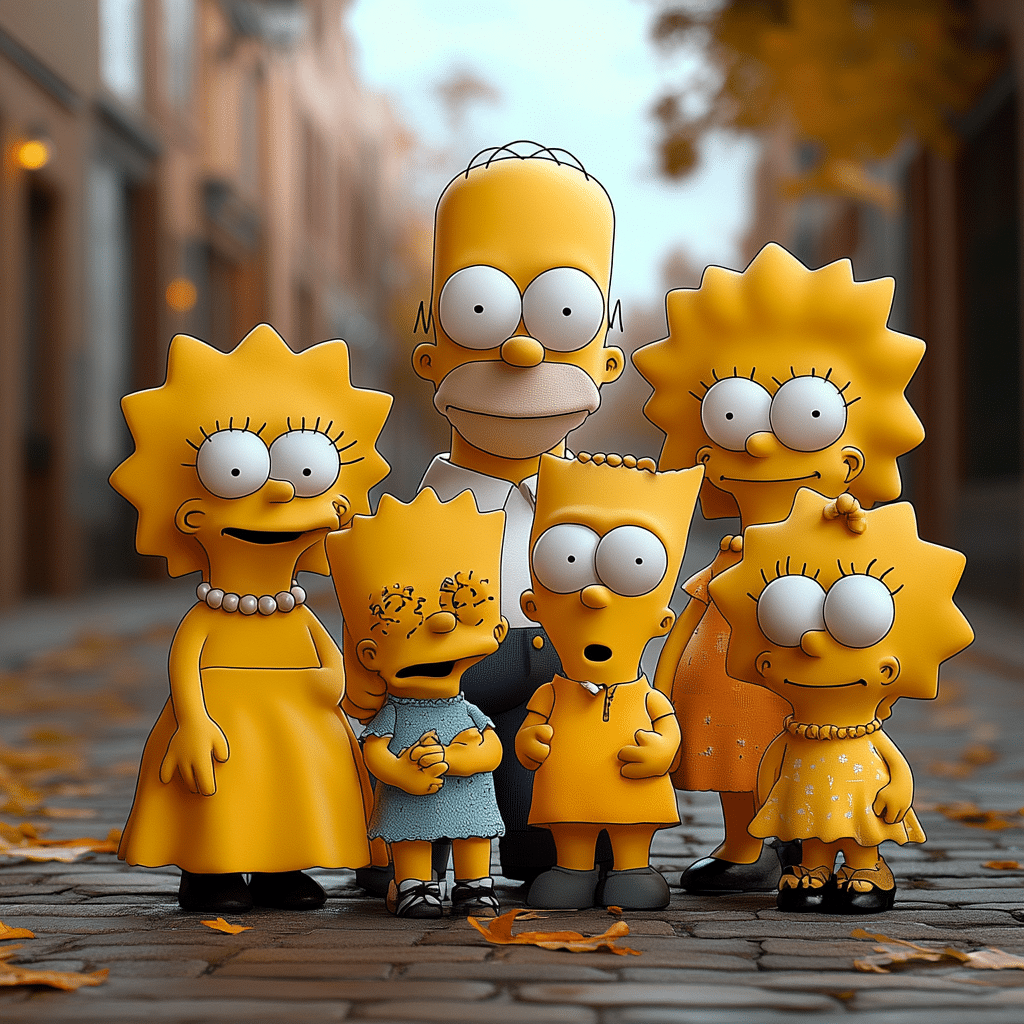
Cultural Impact across Mediums: Beyond The Simpsons Universe
The Simpsons characters have transcended television, finding a place in various media formats. Their influence can be seen in platforms like Stephen Colbert YouTube, where satire and insightful commentary continue to thrive. The comedic genius of the show has woven itself into the fabric of pop culture, where predictions and societal shifts are prevalent topics of interest.
As animated rivals emerged, such as Family Guy, they drew inspiration from the groundwork laid by The Simpsons. Characters from Family Guy often find themselves navigating similar cultural themes while presenting their take on contemporary issues, showcasing the rich legacy that The Simpsons has established through its storytelling.
Moreover, as we look back at the evolution of television, it’s evident that The Simpsons continues to be a cultural touchstone. Its characters invite not only laughter but also deeper conversations regarding societal dilemmas. Humor, heart, and poignant satire have made The Simpsons a show that boasts enduring relevance, ensuring these legends will define generations to come.
In conclusion, the legacy of The Simpsons characters affects how audiences perceive family, ambition, and identity. Their blend of humor and insightful commentary sparks conversations that resonate deeply within popular culture. Whether you’re reminiscing about childhood memories or exploring modern issues, these beloved figures remain integral to our cultural dialogue.
The Simpsons Characters That Defined A Generation
Pop Culture Icons
When you think about The Simpsons characters, it’s tough not to grin at some of the most iconic figures who’ve graced our TV screens. Homer Simpson, voiced by Dan Castellaneta, remains a symbol of the bumbling dad persona that many can relate to—who can forget his classic catchphrase, “D’oh!” Interestingly, Castellaneta once appeared in a lesser-known indie movie alongside Jenny Wright, showcasing the actor’s versatility beyond just voice work. And speaking of iconic, did you know Bart Simpson was modeled after numerous kids, acting out each child’s rebellious spirit? His infamous skateboard stunts, like jumping over Springfield Elementary’s fence, only cement his legacy.
Humor and Heart
Each character in The Simpsons characters brings something special to the table. Take Marge, portrayed by Julie Kavner, whose towering blue hair is just as memorable as her patience towards her family’s antics. Did you know that Marge’s voice has led to some heartfelt moments over the show’s run? It’s fascinating how this animated matriarch has also made appearances in crossover merchandise, such as the delightful collaboration between Hello Kitty And Spiderman, which adds to her cultural significance. Plus, who could overlook Lisa? The ambitious and socially conscious daughter, she often tackles issues like animal rights, showing the depth the series has in its storytelling.
The True Ensemble
Then there’s the unforgettable supporting cast that rounds out Springfield. Characters like Moe Szyslak, voiced by Hank Azaria, have become integral with their quirky establishments (his bar, Moe’s, being a hub for many plotlines). Did you know David L. Lander, who voiced Squiggy on “Laverne & Shirley, made a guest appearance, further bridging the gap between animated and live-action comedies? The sheer number of guest stars that have graced the show is impressive, even featuring acclaimed actors like Rosamund Pike, proving that everyone wants a slice of the Simpsons pie.
Through humor, whimsy, and a few life lessons along the way, the show truly captures the essence of family and community. The hilarious dynamics of the Simpson family and their quirky neighbors keep fans coming back for more, with shows like “Mike & Molly” offering a nice, albeit different, slice of life in the sitcom realm. As we all await the next Super Bowl, fans will soon be buzzing about What time Is kickoff For The Super bowl? in hopes of catching any potential celebrity cameos, perhaps even from Springfield! So sit back, enjoy those nostalgic moments, and keep your eyes peeled for the next unforgettable cameo or playful jab—all signatures of The Simpsons characters that have firmly etched themselves into our collective consciousness.
